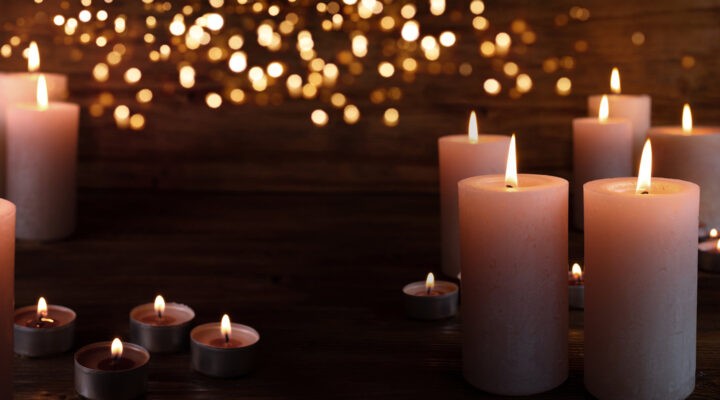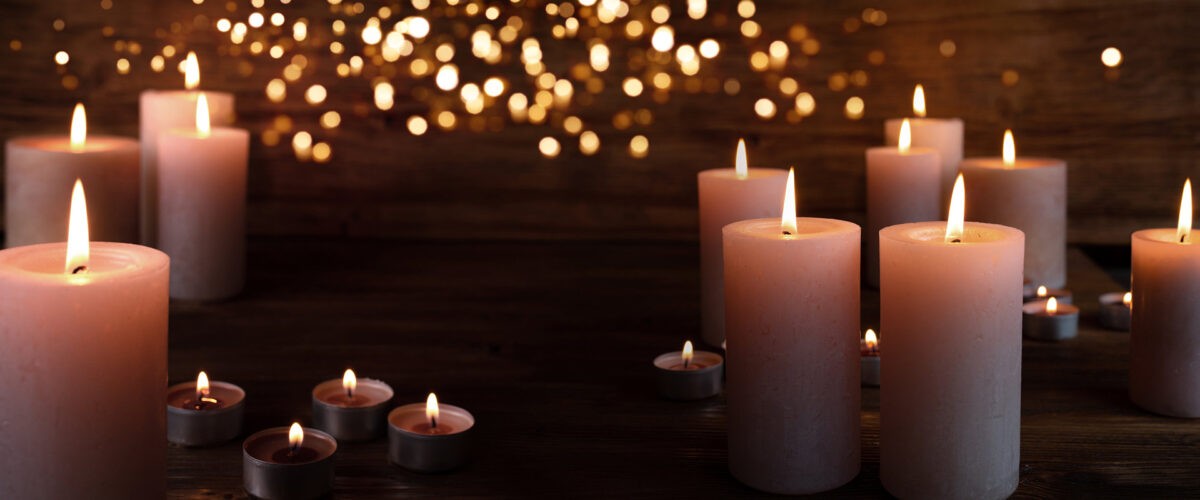People of faith must promote a vision of peace if American democracy is to be protected from the forces that stormed the U.S. Capitol in 2021, urged Jeffrey Haggray, executive director of the American Baptist Home Mission Societies.
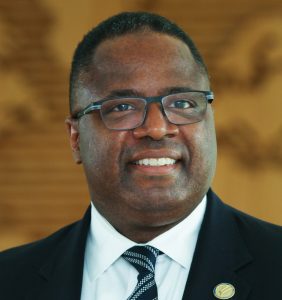
Jeffrey-Haggray
“We will engage in practices and processes that foster the needed evolution of consciousness and that will assure all life on earth has a future,” Haggray said during a Washington, D.C., prayer vigil Jan. 5. “We will integrate the work of justice into every aspect of our lives and use our collective voice and moral authority to affect systemic change.”
Haggray joined a lineup of interfaith speakers during the third annual “Faith in Democracy” prayer vigil, held across from the U.S. Capitol and organized by the Franciscan Action Network. Co-sponsors included the American Baptist Home Mission Societies, the Episcopal Church, the Interfaith Alliance, the Religious Action Center of Reform Judaism and the United Church of Christ.
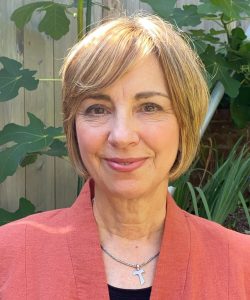
Michele Dunne
“We gather again as people of faith to remind ourselves of the need to stand for the nonviolent resolution of political differences in this country and of the need to improve our democratic system to ensure that all voices are heard and all disputes can be resolved,” said Michele Dunne, executive director of the Franciscan Action Network.
“We gather again as people of faith to remind ourselves of the need to stand for the nonviolent resolution of political differences in this country and of the need to improve our democratic system to ensure that all voices are heard and all disputes can be resolved.”
“About 800 years ago, when St. Francis of Assisi lay dying, he said to his friends: ‘I’ve done what God called me to do. May God show you what is yours.’ So, I suggest we enter into this hour of prayer asking ourselves: What is ours to do in 2024? How can the wisdom traditions of Judaism, of Islam, of Christianity guide us as people of faith?”
Haggray suggested an answer can be found in Jesus’ Sermon on the Mount: “Blessed are the peacemakers, for they will be called children of God.”
“We must make peace with one another across our differences if we are to survive as a democracy and as a human family,” he said. “Jesus demonstrated a profound concern for making peace and cast a vision for a transformed society.”
But that path is fraught with difficulty, given the “unprecedented political fragmentation” and atmosphere of intense hostility caused by the Jan. 6 insurrection, he added.
“Missing from the political discourse that day was any vision of a beloved community as depicted in the Beatitudes. Now, gathered three years following those horrific events, we’re still grappling with the uncertainty of our survivability and sustainability as a democracy. And we’re also asking: What is the prescription going forward for curing inflamed divisions and conflicts for the survival of our democracy?”
The answer can be found in following Jesus’ example as a peacemaker who championed justice, wholeness and dignity for all people, Haggray said.
“Historically, we have looked behind us to our political leaders to cast such a vision of healthy communities, to shape our moral discourse and to devise public policies that advance our peaceful coexistence,” he said. “Now, casting such a vision requires moral fortitude. It requires a sincere reverence for peacemaking. It requires a quality of moral discourse that transcends political maneuvering and political wrangling.”
An important step in fighting for democracy is recognizing its enemies are adherents of white Christian nationalism and calling them out as such, insisted Jim Wallis, founder of the Sojourners advocacy organization and chair of the Center on Faith and Justice at Georgetown University.
“What Jan. 6 three years ago revealed was bad religion, false religion. It’s a false white gospel. So, our job now is to reveal that the answer to bad religion isn’t no religion. The answer to bad religion is good faith.”
“What Jan. 6 three years ago revealed was bad religion, false religion,” Wallis said. “It’s a false white gospel. So, our job now is to reveal that the answer to bad religion isn’t no religion. The answer to bad religion is good faith. That’s what we’re about. This is a year where we’re going to have to reveal good faith.”

Jim Wallis
The promoters of good faith will encounter bad religion “all over the place” in the form of anger, grievance, death threats and violence. But the response must be a politics infused with love and hope, he said.
“I can’t control what happens over there in the Congress,” he conceded. “However, we together can shape what I’m going to call the faith factor in this election. We’re going to put good faith over bad religion, and we’re going to stand up in cold weather and warm weather and hot sun. And we’re going to reveal what religion is supposed to be in this very critical year before us.”
Confrontation of anti-democratic ideologies must encounter its historic precedents, including the lasting influence of human slavery on American society, said Talib Shareef, president of Masjid Muhammad in Washington.
“Before we can correct the problems of society, we must first correct the problems in ourselves,” Shareef noted. “The present inherits the past, and as a nation, we have inherited the mistakes of the past that are rooted in the fact that human beings were enslaved, oppressed, gravely mistreated and used as beasts of burden.”
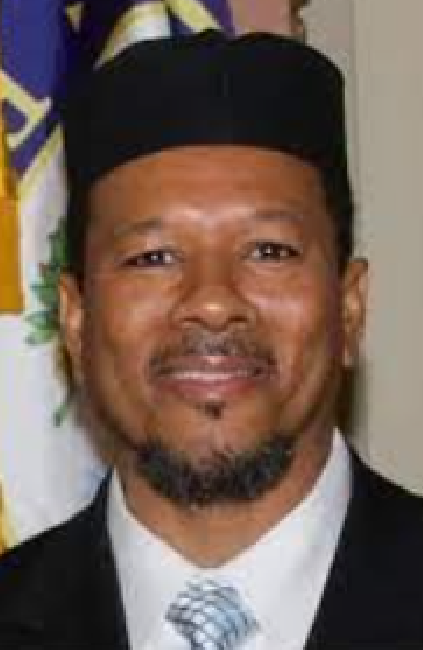
Talib Shareef
Those social structures endured after the end of slavery, he observed. “Despite our beautifully worded Constitution, human beings were still gravely mistreated. There remained a disposition that said: ‘Yes, we believe that Black people should not be chained or denied their rights, but we do not like to see them share with us in America as our equals.’”
Love and trust in God and others offer a way forward, Shareef said.
“For God’s sake, let us have a true democracy and truly treat all citizens equally as a creation of our creator,” he pleaded. “We are here as people of faith united, extending an invitation to all to respect and to embrace our shared identity as humans and Americans and to stay the course, do our civic duty, value our intrinsic nature and to live together peacefully and intelligently.”
Dietrich Bonhoeffer, the German pacifist executed by the Nazis during World War II, provided a blueprint for activists to follow in opposing Christian nationalism, said Karen Brau, senior pastor of Luther Place Memorial Church, located about two miles from the U.S. Capitol.
Bonhoeffer, a Lutheran pastor, wrote from prison that folly, or false ideas, cannot be eliminated with reason because people believe those lies to be true. What eradicates folly is liberation, which he defined as living a responsible life before God, Brau said.

Karen Brau
“I invite us to attend to liberation in a way that becomes a daily practice for each and every one of us here in person and online,” she said. “And it’s liberation for loving God and neighbor and self. It’s liberation for discerning wise actions in the face of ongoing untruths. It’s liberation for praying and for a rededication to democracy and collective responsibility like voting rights, voting, running for office and having morals as to what that means.”
David Saperstein, director emeritus of the Religious Action Center of Reform Judaism, suggested emulating Martin Luther King Jr.’s model of courageous nonviolence in this election year.
“Thoughtful people can hold differing views that they draw from their God-given conscience, and they can learn from each other,” he said. “And it reminds us that civil discourse, where there is respect for the views of others, is needed more than ever in American politics and culture.
“These religious values — the dignity of every person, freedom of choice, freedom to decide on our government and its policies, freedom of speech in the press — are the values that resonated with Dr. King’s vision. They’re the values we must bring to our nation in this critical election year.”
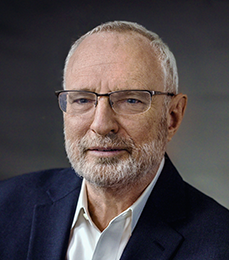
David Saperstein
The bottom line is taking social and spiritual action to counter anti-democratic movements, said Bridget Bearrs, associate director for transformative justice with the Leadership Conference of Women Religious, an organization of about 1,300 Catholic nuns.
“Participation in the life of equal access to justice is, for us, a moral obligation that cannot be delegated to another,” she said. “Each of us is called to respond to the experiences we have of confronting unjust structures, the abuse of power, distortions of truth and the exclusions of rights.”
The work must be grounded in contemplation and willingness to sit in discomfort while addressing division and polarization, Bearrs said.
“We must respond to this moment in our history and to the violence around us. We are called to stay at the table and to be women who recognize that our work is far from done.”
Related articles:
Interfaith coalition produces ‘Faith in Elections Playbook’ to guide faith leaders
A call for immoderate mediators: David Gushee defends democracy from its Christian enemies
My argument in Defending Democracy from its Christian Enemies
Interdenominational panel warns of extreme danger of Christian nationalism

